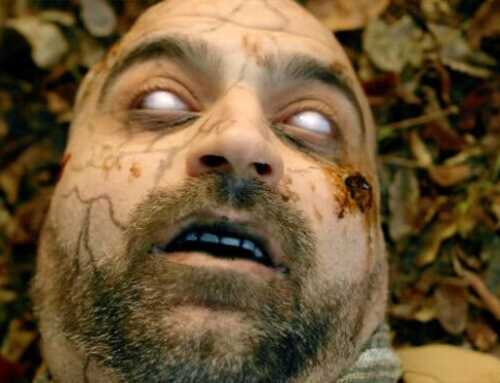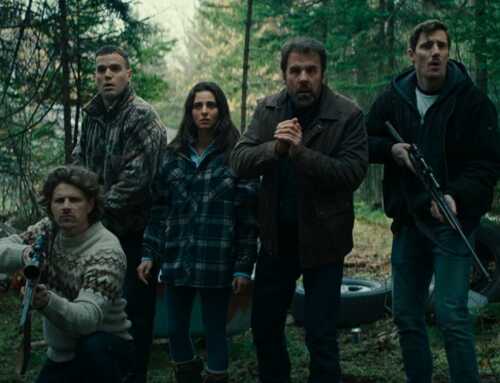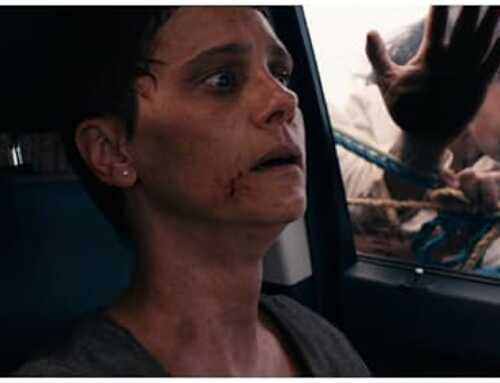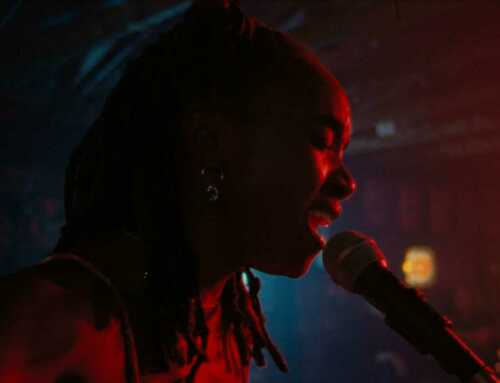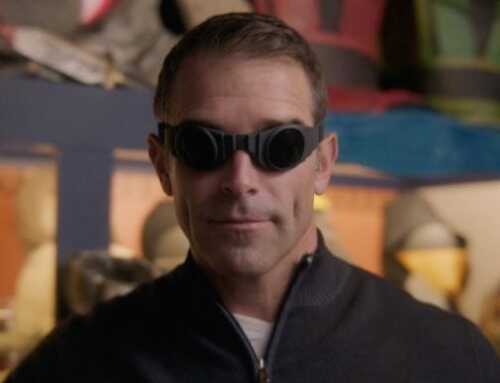11:50 is a neo-noir crime thriller short from director Tiger Chen. We open to a man (Jerry) driving through a neon-lit, rain-slicked alleyway when he hits and kills a pedestrian. Far from the typical response of trying to help or fleeing in panic, our unnamed protagonist calmly gets out of his car, drags the man out of the road, and proceeds to rob him of his watch, phone, and hotel key. What begins as your standard vehicular manslaughter gets more complicated when the dead man receives a text suggesting that some sort of delivery has been hidden in his hotel room. Deciding that he hasn’t gotten himself in enough trouble already, he follows the trail to try his luck and claim the prize for himself.
11:50 is a fairly standard crime drama on a conceptual level but it excels in execution, particularly in its visual style. Everything has a sense of hyper-realism, with the action taking place on that perfect dark and stormy noir night with stylistic light trails and a color palette that’s exaggerated just enough to make everything pop. The use of intentional anachronism, with cars from the 60s, advertisements from the 40s, and late 90s flip phones create a completely unique aesthetic that could not exist during an actual time period.
There is almost no dialogue to speak of, but the lead, credited only as Jerry, tells you everything you need to know about his character from his body language. He’s always scanning the horizon, suggesting he’s used to living with the threat of danger and his erratic movements show a history of drug use. The hotel has its own personality, with crying and screaming being audible through its halls. This is a place where bad people do bad things and we are left to anticipate what the hotel has in store for our lead. A gorgeously-executed classic crime story, 11:50 is a thriller that respects its roots.



